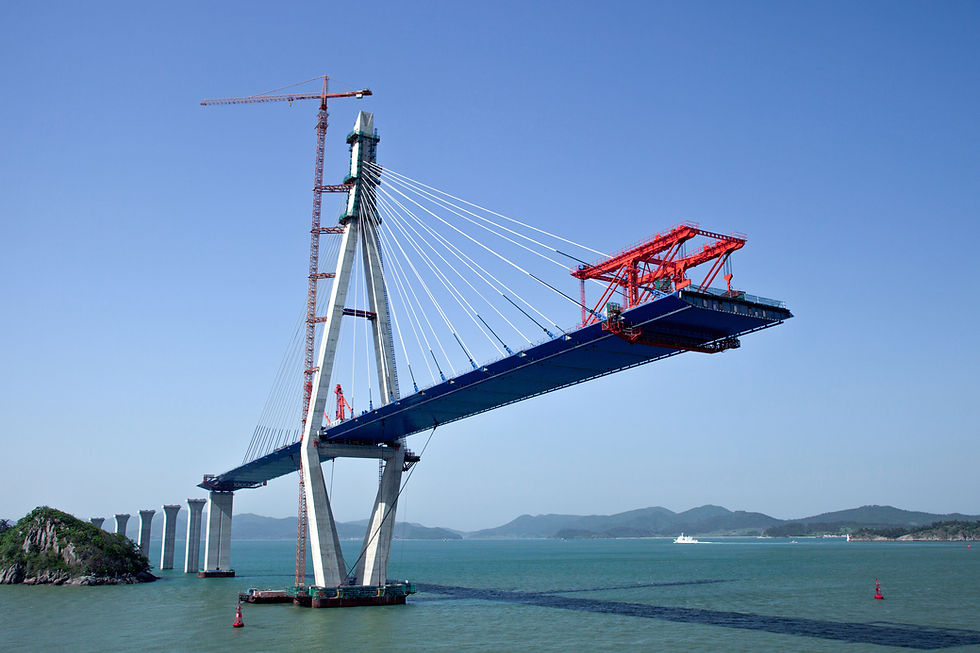A Leader’s Journey
- winningconsultations

- May 6, 2020
- 4 min read
“The task of the leader is to get their people from where they are to where they have not been.”
— Henry Kissinger
Within organizations and around the world, leaders are tasked with influencing and energizing individuals to achieve commonly held objectives. Becoming a GREAT leader requires not only observing the leadership styles of others but also utilizing one’s own unique set of personality traits to create a sense of authenticity and trust.
This blog post recounts the start of a unique leadership journey for one of our own, Winning Consultations’ Marketing Coordinator Megan.
“A true leader has the confidence to stand alone, the courage to make tough decisions, and the compassion to listen to the needs of others. He does not set out to be a leader, but becomes one by the equality of his actions and the integrity of his intent.”
— Douglas MacArthur
A symbol of good things to come, Megan was nominated for a local “Future Leader Award” in May of 2007 and recognized by Suburban News as one of 20 Middlesex County high school students with the most promise for a successful future. Little did she know that the opportunity to lead would present itself so quickly — her first shot at being an organizational leader came that same summer as a soon-to-be college freshman working for an organization known as the Sayreville Conservation Corps.

Founded by former council member and then high school teacher Stanley Drawl in 2004, the Sayreville Conservation Corps was inspired by the Civilian Conservation Corps — a federal relief program established by President Franklin D. Roosevelt in 1933 — and followed the same hierarchical structure as the U.S. armed forces. After two years of serving as Mess Sergeant for the organization, Megan was promoted to Master Sergeant and would now be responsible for leading approximately 25 high school students, better known as pioneer workers, in maintaining the local Julian L. Capik Nature Preserve.
Being a young woman — and one of few in the organization — taking on her very first leadership role, Megan struggled to find her voice. This is not something that simply exists; individuals must learn about leadership and intertwine their own personal behaviors and traits to discover their preferred leadership style. At one time required to complete the same projects assigned to her new subordinates, Megan soon realized she could easily relate to her pioneer workers when manual labor proved difficult. She began using this to her advantage and, in turn, discovered the best way to lead this distinct group of workers.
As Master Sergeant, Megan learned the importance of group dynamics and strived each day to develop innovative ways for aligning vision and strategy and achieving team goals. She created a workplace culture shaped by commitment and accountability and utilized transformational leadership to increase employee motivation. Aligning her team around a central rallying cry, the Chinese motto “Gung Ho,” meaning “Work Together – Work in Harmony,” she raised awareness of the importance of collective results.
“If you’re not sure where you are going, you're liable to end up someplace else.”
— Robert F. Mager
Now 13 years later, Megan cites intelligence, drive, creativity, authenticity, and accountability as a few of the leadership qualities she deems vital for organizational success. “Leaders must be intelligent, possess a strong drive for proper and timely task completion, demonstrate creativity in problem-solving, build an authentic style that other team members can trust and allow themselves to be held accountable for their own work,” she says.
As Megan has shown, each of the above traits, along with others, can be learned and improved upon through training, education, and experience. “Leaders must demonstrate a commitment to learning and improvement, for the good of themselves; for the good of their teams,” she adds.
“Become the kind of leader that people would follow voluntarily, even if you had no title or position.”
— Brian Tracy
Leaders should possess a high emotional intelligence IQ to decipher the characteristics of the teams they lead and be both willing and able to adapt in response to their teams’ unique needs. In her later years, Megan endured a work situation in which employees were peremptory, tasks were ambiguous, and rules, as well as operating procedures, were often unclear. She adapted her leadership style to meet the needs of the situation. Although unnatural to her, Megan learned to utilize a more directive leadership approach, albeit in her own unique way, with an emphasis on efficiency and results. Knowing her new leadership style came from a place of authenticity, Megan’s team was responsive to this change and committed to effectively completing tasks aimed at achieving organizational goals.
“Treat people as if they were what they ought to be, and you help them become what they are capable of being.”
— Johann Wolfgang von Goethe
While leaders were once relied upon to develop ideas, decide on courses of action and exert influence over groups, today’s highly-turbulent, diverse and demanding world requires modern-day leaders to assist individuals and teams with understanding their potential, wants and needs, and how they can come together most effectively to achieve collective results.
Leaders must coherently and succinctly articulate the vision of their organizations in a way that aligns their teams and acts as stimuli of group action. In order to keep step with societal changes, leaders must be disciplined, strive for continuous learning, be able to synthesize information and team ideas, harness creativity, embrace diversity and, most importantly, adapt. What type of leader are you?
“A leader is not an administrator who loves to run others, but someone who carries water for his people so that they can get on with their jobs.”
— Robert Townsend
.png)





Comments